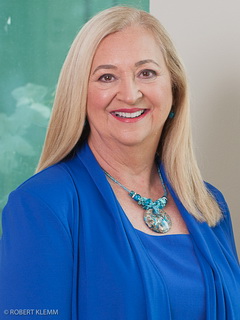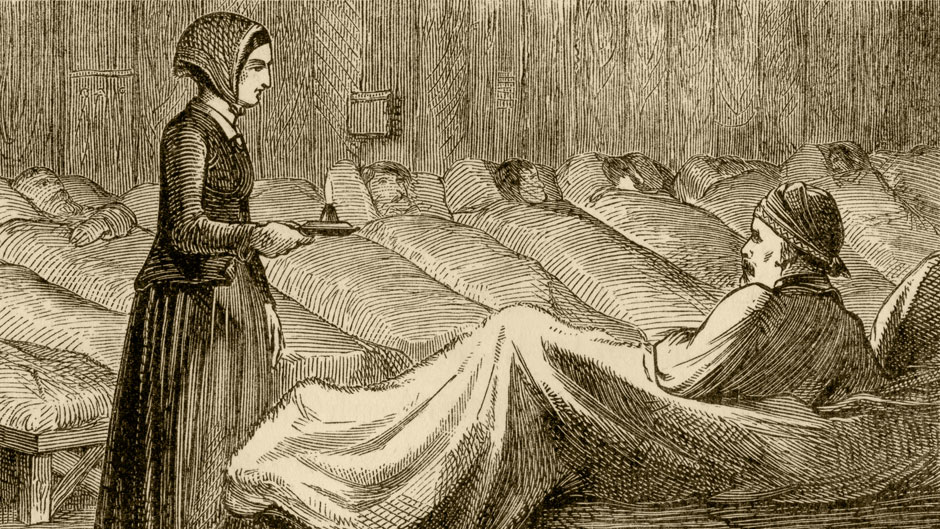Presaging the hospice movement, she insisted wounded soldiers not die alone. Focused on patient outcomes, she practiced evidence-based medicine more than a century before the term was coined. Promoting good hygiene, sanitation, and nutrition, she pioneered public health.
Given Florence Nightingale’s dedication to patient-focused care, Cindy Munro, dean of the University of Miami School of Nursing and Health Studies, has little doubt the founder of modern nursing would recognize her profession in 2020—the 200th anniversary of her birth. Designated by the World Health Organization as the International Year of the Nurse and the Midwife, the school is celebrating 2020 with an ambitious array of events, initiatives, and lectures, the first of which takes place Friday, February 28, on a subject dear to Nightingale’s heart: data-powered health.

“Could she have predicted the changes in nursing?” Munro said of the legendary social reformer whose initiatives slashed the mortality rate of British soldiers during the Crimean War. “I am not sure, but she did say nursing would be entirely different in 150 years. So, she had this vision of nursing progressing and evolving. I think she would recognize what we are doing as rooted in the foundation that she laid. She definitely set the course and the standards we follow today.”
To honor Nightingale’s legacy and the critical contributions of 20 million nurses around the world, Munro pledged the school’s support for Nursing Now, a three-year campaign dedicated to improving health by raising the profile and status of nurses everywhere. As part of that campaign, the school developed its own Nursing Now lecture series, which Patricia Flatley Brennan, the director of the National Library of Medicine, will kick off at 11 a.m. on Friday, during the school’s annual Simulation Symposium.
But the school also accepted Nursing Now’s 2020 Nightingale Challenge to help equip and empower the next generation of nurses to become health leaders, practitioners, and advocates. So Brennan’s talk, and two more by two other nursing leaders, will be open not only to the UM and South Florida communities, but to 60 early-career nurses from South Florida, Mexico, Brazil, Chile, Uruguay, and the Bahamas who have been identified by the school’s clinical partners as potential nursing leaders.
Following the lectures, challenge participants from South Florida will attend networking luncheons with the speakers and engage in discussions on nursing leadership roles. Underscoring the school’s hemispheric reach, most of the challenge participants are from Latin America and the Caribbean and will attend the lectures remotely. Afterward, they will also participate in their own interpreted discussions, led by Johis Ortega, associate dean for hemispheric and global initiatives.
Nightingale—who founded London’s Training School for Nurses in 1860 and published more than 200 books, reports, and pamphlets, including the seminal “Notes on Nursing”—would certainly recognize the value of such mentorship activities. As Munro noted in an editorial for the American Journal of Critical Care, “She understood, as we do today, that mentoring others is an important aspect of improving the workplace and a potent force for improving patient care.”
But Nightingale probably would be astounded both by how modern nursing students learn at the school’s Simulation Hospital for Advancing Research and Education (SHARE) and by its daylong symposium, which also will feature a talk by UM alumnus Rony Abovitz, the founder of Magic Leap, who will discuss the applications of mixed reality in the health sector.
Afterward, SONHS faculty will demonstrate the projects they’ve developed with Magic Leap’s new spatial computing technology, which enables users to move computing from the 2D screen into the 3D world, and create scenarios limited only by imagination. For example, Juan E. Gonzalez and Greta Mitzova-Vladinov, the director and associate director of the nurse anesthesia program, respectively, are using Magic Leap’s platform to ignite oxygen-fueled fires in the operating room—but without real smoke or any real danger to the doctoral students learning how to prevent or extinguish them.
But Nightingale, who rebelled against the Victorian expectation that women of her privileged status should become wives and mothers, would hardly be surprised that the school is training nurses to administer anesthesia. After all, as Munro noted, Nightingale spent her lifetime challenging the status quo and transforming the role and perception of what nurses do.
Yet, in 2018, with the world facing a nursing shortage and the rising burden of chronic diseases, Nursing Now was compelled to launch its three-year campaign to elevate the profile and status of nursing worldwide.
Operated in collaboration with the WHO and the International Council of Nurses, Nursing Now seeks to ensure that nurses and midwives have a more prominent voice in health policy-making and to encourage greater investment in the nursing workforce and leadership development. Barbara Stilwell, the executive director of Nursing Now’s global campaign, will present the school’s second Nursing Now lecture on March 16.
Nearly 200 years after Nightingale’s birth on May 12, 1820, Munro said, it’s necessary to raise the profile of nurses because many people still don’t understand that they are at the heart of health care, playing critical roles in health promotion, disease prevention, and treatment.
“Instead of thinking about it as a very patient-focused, scientific discipline, many people still think of nurses as handmaidens,” Munro said. “But nursing is a very independent profession and, while we do work collaboratively with other health sciences professions, we have our own disciplinary knowledge. We are on the frontlines. It is the nurse who does the day-to-day care and the discharge planning or end-of-life planning or whatever the next phase is. But there’s this perception that we work at the direction of the physician, which is not true.”
That certainly wasn’t true for Nightingale, who became a national hero in England for her work at the onset of Britain’s involvement in the Crimean War in 1854. Over the objections of male military physicians, she led and trained 38 female nurses to care for wounded soldiers at a military field hospital in Turkey. Through her observations and extensive record-keeping, she realized more soldiers died from infections than from their injuries and pressed for measures to reduce overcrowding and improve hygiene, sanitation, ventilation, and natural light. After her initiatives were implemented, the mortality rate plummeted from 42.7 percent to 2.7 percent.
“She was not working for any physician,” Munro said. “She was working for the good of the soldiers in the Crimean War, and all the sanitation and environmental control measures she implemented came right out of her sense of nursing. They were not anything she was directed to do. She did not have a guidebook. She wrote our guidebook, and it has withstood the test of time.”
For more information about the school’s celebration of Nightingale’s legacy, including the third lecture by Elizabeth Madigan, chief executive officer of the Sigma Theta Tau International Society of Nursing, on April 24, visit Nursing Now USA.

